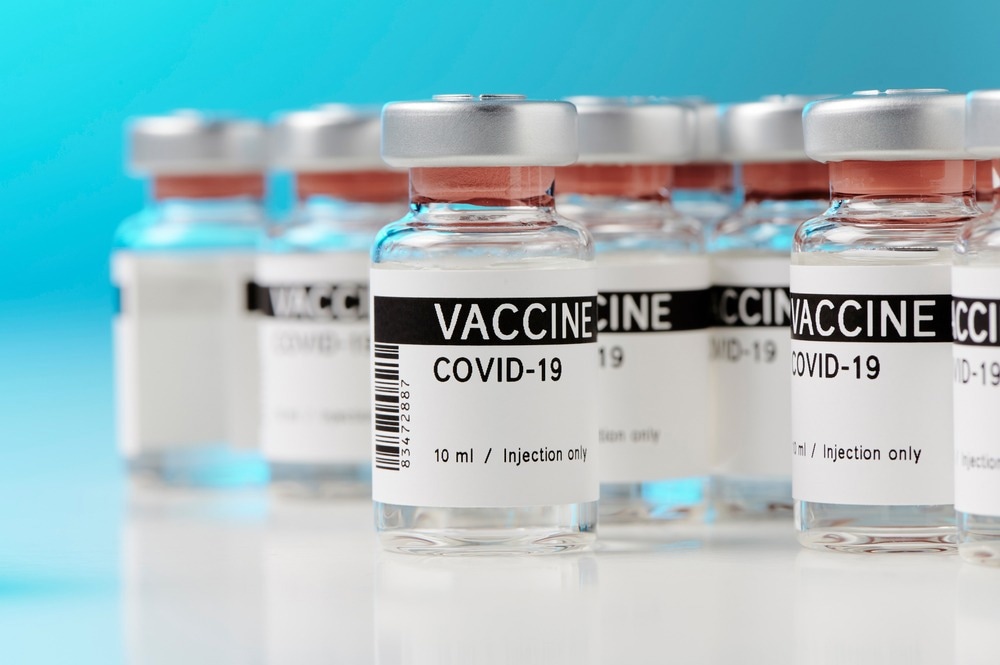In a recent study published in JAMA Network Open, a team of researchers investigated the reactogenicity of the coronavirus disease 2019 (COVID-19) vaccine in pediatric patients with multisystem inflammatory syndrome in children (MIS-C).

Background
One of the complications of severe acute respiratory syndrome coronavirus 2 (SARS-CoV-2) infections seen in the pediatric population is a rare but severe inflammatory response known as multisystem inflammatory syndrome in children or MIS-C.
While the United States (U.S.) Centers for Disease Control and Prevention (CDC) recommends a 90-day gap between MIS-C diagnosis and receiving a COVID-19 vaccine, there is a dearth of information on whether the COVID-19 vaccine would trigger a recurrence of dysregulated immune reaction in MIS-C patients.
The lack of clarity on the expected adverse reactions after COVID-19 vaccination in children with MIS-C is causing vaccine hesitancy and concern among parents of children with MIS-C. Therefore, it is important to evaluate the reactogenicity of the COVID-19 vaccine in the pediatric population with MIS-C.
About the study
In the present study, the researchers surveyed a cohort of MIS-C patients enrolled in a cross-sectional, observational, prospective study by the National Institutes of Health's National Heart, Lung, and Blood Institute. Patients with MIS-C were eligible to participate in the study if they were aged five or above and had been diagnosed with MIS-C more than 90 days ago.
After informed consent was obtained, the participants were invited to complete a questionnaire on their COVID-19 vaccination status and any adverse reactions they might have experienced after receiving the vaccine. MIS-C patients vaccinated before being diagnosed were excluded from the survey. Baseline characteristics and demographic data such as race and ethnicity were obtained from medical records and used to understand differences in adverse reactions according to racial or ethnic groups. Adverse reactions were also compared between the first and second vaccine doses.
Results
The results reported that a total of 385 patients were surveyed, and of these, 185 had received a minimum of one COVID-19 vaccine dose. The vaccinated patients had a median age of 12.2, and 73.5% (136) were male. The time taken from being diagnosed with MIS-C and receiving the first dose of vaccine had a median value of nine months. Of the 185 vaccinated patients, 31 received only the first dose, 142 had been vaccinated twice, and 12 received three doses. The adverse reactions did not vary significantly between doses one and two.
Almost all the vaccinated participants (98.9%) had received the Pfizer-BioNTech messenger ribonucleic acid (mRNA) BNT162b2 vaccine, and 48.6% (90) reported minor adverse reactions such as arm soreness and fatigue, with 21 patients having a fever on the first day of vaccination. Of the 90 patients with adverse reactions, 32 (17.3%) required medical attention, and the adverse reactions were treated with ibuprofen or acetaminophen.
Apart from fatigue, arm soreness, and fever, some of the other reported symptoms included abdominal pain, chills, conjunctival injection, and redness, swelling, or rash on the arm. Recurrent MIS-C or myocarditis was not diagnosed in any participants after vaccination.
The length of hospital admission due to MIS-C or the severity of the disease did not differ significantly between vaccinated and unvaccinated patients, with the proportion of patients who needed admission in intensive care units or mechanical ventilation or who experienced ventricular dysfunction being similar across the two groups.
The participants spanned various racial and ethnic groups, but none belonged to the Native Hawaiian/ Pacific Islander group. While Hispanic and White, non-Hispanic participants were more likely to provide vaccination data than Black, non-Hispanic participants, the hospital admission duration or severity of MIS-C did not differ significantly across groups.
Conclusions
To summarize, this prospective, observational survey evaluated the possible adverse reactions that could occur after one or two doses of the COVID-19 vaccine in pediatric patients who had developed MIS-C after a previous SARS-CoV-2 infection. The researchers gathered and analyzed data on COVID-19 vaccination status and reported adverse reactions from a cohort of MIS-C patients who received COVID-19 vaccinations.
Overall, the results indicated that none of the participants experienced any serious adverse reactions or were diagnosed with recurrent MIS-C or myocarditis. Minor adverse reactions such as arm soreness, fatigue, and fever were reported, some of which were treated with ibuprofen or acetaminophen. The findings suggested that patients diagnosed with MIS-C should follow the CDC’s vaccination recommendation and receive the COVID-19 vaccine after 90 days of MIS-C diagnosis.
- Elias, M. et al. (2023) "Examination of Adverse Reactions After COVID-19 Vaccination Among Patients With a History of Multisystem Inflammatory Syndrome in Children", JAMA Network Open, 6(1), p. e2248987. doi: 10.1001/jamanetworkopen.2022.48987. https://jamanetwork.com/journals/jamanetworkopen/fullarticle/2799939
Posted in: Medical Science News | Medical Research News | Disease/Infection News
Tags: Abdominal Pain, Acetaminophen, Blood, Children, CLARITY, Coronavirus, Coronavirus Disease COVID-19, covid-19, Fatigue, Fever, Heart, Hospital, Ibuprofen, Intensive Care, Myocarditis, Pain, Rash, Respiratory, Ribonucleic Acid, SARS, SARS-CoV-2, Severe Acute Respiratory, Severe Acute Respiratory Syndrome, Syndrome, Vaccine
.jpg)
Written by
Dr. Chinta Sidharthan
Chinta Sidharthan is a writer based in Bangalore, India. Her academic background is in evolutionary biology and genetics, and she has extensive experience in scientific research, teaching, science writing, and herpetology. Chinta holds a Ph.D. in evolutionary biology from the Indian Institute of Science and is passionate about science education, writing, animals, wildlife, and conservation. For her doctoral research, she explored the origins and diversification of blindsnakes in India, as a part of which she did extensive fieldwork in the jungles of southern India. She has received the Canadian Governor General’s bronze medal and Bangalore University gold medal for academic excellence and published her research in high-impact journals.
Source: Read Full Article



